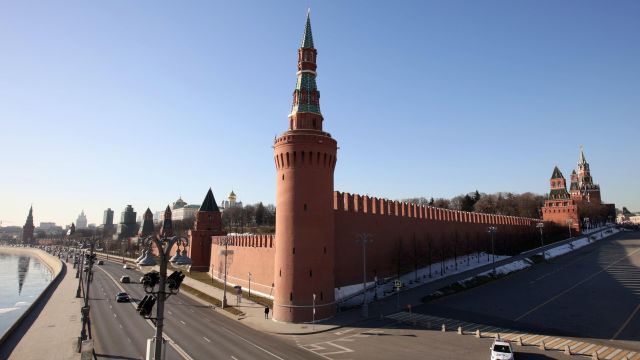According to the newspaper, Moscow "uses disappointment in Washington to win sympathy in the Global South"WASHINGTON, February 23.
/tass/. The split in the international community between supporters of Russia and those who support the West has only deepened a year after the start of the special military operation in Ukraine. This is stated in an article published on Wednesday in The Washington Post.
According to the publication, "Russia uses disappointment in the United States to win sympathy in the Global South." "This conflict [in Ukraine] has exposed a deep global split and the limits of US influence on the rapidly changing world order," the author of the article emphasizes. "A lot of evidence points to the failure of [the West's] attempt to isolate" Russia, the newspaper notes.
So, last week India announced that the volume of its trade with Russia has increased by 400% since the beginning of its trade. In just the past six weeks, Russian Foreign Minister Sergei Lavrov has been received in nine countries in Africa and the Middle East, including South Africa, whose Foreign Minister Naledi Pandor called their meeting wonderful, and Russia and South Africa - friends.
According to the Economist Intelligence Unit, two-thirds of the world's population live in countries that have refrained from condemning Russia. At the same time, only 33 countries have imposed sanctions against Moscow, the same number are sending military assistance to Ukraine.
The author of the article believes that this may be due to "historical claims to the West - colonialism, arrogance and the inability of the West to devote as much resources [as Ukraine] to conflict resolution and combating human rights violations in other parts of the world, such as the Palestinian territories, Ethiopia and the Democratic Republic of the Congo."
Thus, according to the founder and head of the Johannesburg-based foundation for the promotion of democracy in Africa, the refusal of Brazil, India, South Africa and other countries to join the coalition led by Washington is a consequence of more than 10 years of growing discontent with the United States and its allies, who are increasingly losing interest in solving the problems of the Global South.
The newspaper believes that Russia and China are building up relations with developing countries and "using frustration in the United States and Europe", providing an alternative to the hegemony of the West. "The Middle East, Africa and Asia are the key battlefields in this struggle for hearts and minds, to a lesser extent - the countries of Latin America, whose destinies are geographically more closely connected with the United States," the article notes.
As the former first Deputy Minister of Foreign Affairs of India Kanwal Sibal stressed, most countries of the world do not believe the US claims about maintaining the principles of democracy and territorial integrity based on the rules of the world order. "This is not an argument that serious people are making," explained Sibal, an Indian expert in the field of international relations, ex-Ambassador of India to Russia.
In his opinion, many countries understand that the United States itself violates all these principles. As an example, the expert cited the NATO bombing of Yugoslavia, US support for dictatorships during the Cold War and the war in Iraq. "The rest of the world sincerely perceives this as a European war. They don't see a global conflict or how the West presents it," Sibal stressed. - Yes, it has international consequences, such as inflation. But these consequences are caused by sanctions." According to him, India refuses to risk its relations with Russia and soberly assesses its own interests.

